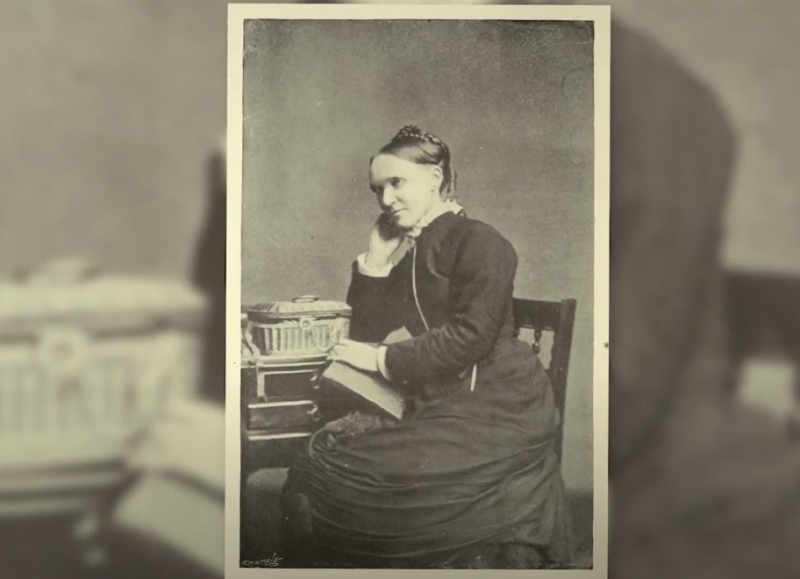The Benefits and Dangers of Daydreaming
Sign up for a six month free
trial of The Stand Magazine!
If you grew up reading the Anne of Green Gables books, then you, like me, probably aspired to be a whimsical, unrealistic, red-haired daydreamer. Imagination was put on a sparkling pedestal in Anne’s life, and she dreamt up countless fairylands in her daydreams. That wandering mind got her into trouble plenty of times, and yet it inspired my younger self to indulge in dreams like hers.
Don’t get me wrong; I still adore Anne and aspire to be like her in many ways. But, wonderful as Anne’s story is, her habit of daydreaming begs some discussion.
Let’s define our term. A common definition of a daydream is “a series of pleasant thoughts that distract one’s attention from the present.” We might also call it zoning-out or imagining.
In Anne’s life, daydreams were a beautiful comfort that helped her work through her troubled childhood. They grew the imagination and developed creativity in her already intelligent mind.
Psychological research is beginning to reveal that daydreaming is a strong indicator of an active and well-equipped brain. Studies show daydreaming exercises our brains, develops creativity and imagination, improves our working memory, encourages empathy and understanding, improves performance, and reduces stress.
It can also lead to the creation of things. Engage Magazine, AFA’s ministry to Millennials, was started by a few people daydreaming. Mary Shelley’s literary masterpiece Frankenstein was born in a daydream, as was Einstein’s theory of relativity, the Bronte sisters’ novels, and most of Edgar Allen Poe’s works.
Obviously, those are all great things. Daydreaming can bring great things. But there is another side to daydreaming.
According to the Scientific American, we spend up to 50% of our waking lives letting our minds wander. That’s a staggering statistic.
Researchers at Harvard University used an app to monitor thoughts, feelings, and actions of 2,250 adults in the US. They found daydreaming about pleasant topics added nothing noticeable to the participants’ levels of happiness, but daydreaming about neutral or negative topics increased unhappiness.
Getting lost in our own thoughts, whether good or bad, takes us away from the moment God has placed us in. Imagining other situations almost always causes discontentment with our current situations. Daydreaming can make us long for something else, something we don’t have. This mind wandering also gets in the way of learning, and many psychologists believe too much daydreaming is linked with unhappiness and dissatisfaction.
The thing is: Not all daydreams are created equal.
Philippians 4:8 tells us that we ought to be thinking about whatever is true, honorable, just, pure, lovely, commendable, excellent, or worthy of praise. Daydreams do not always take us out of these parameters, but they definitely have the power to if we let them.
There’s a sweet, godly older lady at my church who is very passionate about the proper use of our leisure thoughts, and she has been a great help to me on the topic. Hear this from a book she gave me, The Spirit of Discipline by Francis Paget:
There is tremendous power of habit; the constant, silent growth with which it creeps and twines about the soul, until its branches clutch and grip like iron that which seemed so securely stronger than their little tentative beginning. So the mind spoils its servants, till they become its masters; and the leisure thoughts of life may either be a man’s garden or his prison. Thus there is, perhaps, nothing on which the health and happiness and worth of life more largely turn than on this – that the habitual drift, the natural tendency of our unclaimed thought, should be toward high and pure and gladdening things.
Throughout all waking hours, thoughts and daydreams of one kind or another must occupy our minds, and by God’s grace, we have the power to determine what kind they will be – a garden or a prison. If we are not careful, we will only grow in discontentment and dissatisfaction. The prison door will grow heavier and heavier. We have to take control with mindfulness and grow a beautiful garden instead.
Daydream away, friends, but whatever is true, honorable, just, pure, lovely, commendable, excellent, or worthy of praise – daydream on these things.
Editor’s Note: Kelley Crampton is a guest blogger for The Stand who wrote the above blog. She is an intern working for various departments at American Family Association, including Engage, AFA Journal, AFR talk radio, and OneNewsNow. She is seeking to know, love, and serve the Lord better each day, and she wants to live out Acts 20:24 with every moment. Beginning in the fall of 2018, Kelley will be a freshman at New College Franklin right outside of Nashville, TN, studying Liberal Arts.

Sign up for a free six-month trial of
The Stand Magazine!
Sign up for free to receive notable blogs delivered to your email weekly.


















